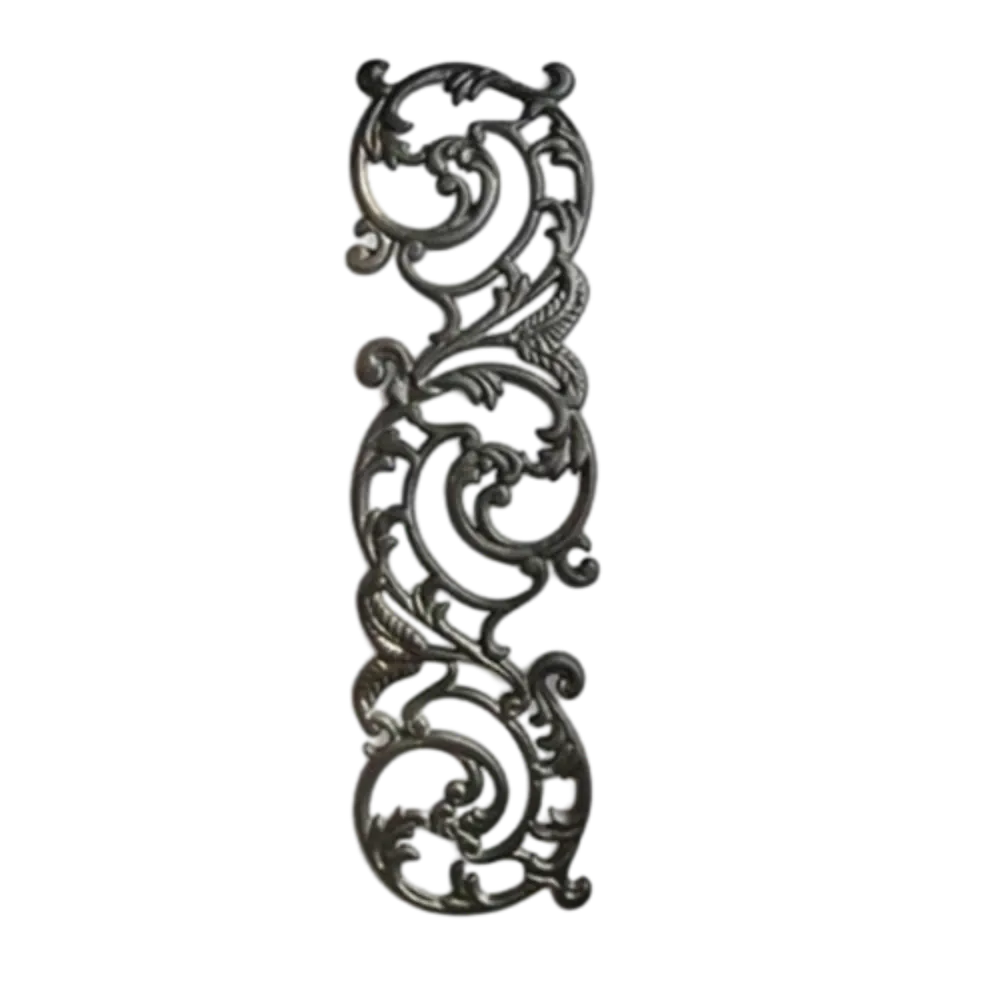Understanding the Significance and Properties of Wrought Iron in Modern Applications
The Meaning and Significance of Wrought Iron
Wrought iron, a material that has been utilized for centuries, carries both historical significance and practical applications that resonate in contemporary design and craftsmanship. To fully appreciate the notion of wrought iron, one must understand its composition, production process, characteristics, and the cultural connotations attached to it.
What is Wrought Iron?
Wrought iron is an alloy of iron, with a low carbon content, typically less than 0.08%. This composition allows it to be malleable and ductile, enabling it to be shaped easily when heated. Unlike cast iron, which is brittle, wrought iron’s unique properties make it particularly suitable for forging and working into intricate designs. Historically, wrought iron was produced by heating iron ore and hammering it repeatedly to remove impurities. This labor-intensive process has given way to modern techniques, but the traditional craftsmanship associated with wrought iron remains highly valued.
Historical Context
The history of wrought iron dates back to ancient civilizations, such as the Egyptians and the Romans, who recognized its utility for tools and weapons. Its significance grew during the Middle Ages when blacksmithing flourished. Artisans crafted wrought iron pieces ranging from functional items, like horseshoes and tools, to decorative elements such as gates, railings, and furniture. The Renaissance period saw wrought iron reach new artistic heights, with elaborate designs that reflected the era's aesthetic principles.
Characteristics of Wrought Iron
wrought iron meaning

One of the most distinctive features of wrought iron is its fibrous structure, which is a result of the production method and low carbon content. This structure imparts excellent tensile strength and flexibility, making it less susceptible to breaking under stress. Additionally, wrought iron is highly resistant to corrosion compared to other forms of iron, particularly when it is properly maintained and painted. These properties have made wrought iron a preferred material for outdoor structures and fixtures, such as fencing and garden furniture.
Modern Applications
In recent years, wrought iron has seen a resurgence in popularity within architectural and interior design circles. The aesthetic appeal of wrought iron is undeniable; its ability to be molded into intricate patterns and designs adds a touch of elegance to both traditional and modern spaces. It is commonly used for decorative railings, staircases, gates, and light fixtures. Moreover, artisans specializing in blacksmithing have revived the craft, creating bespoke pieces that blend functionality with artistry.
Cultural Implications
Wrought iron also carries cultural significance in various societies. In many cultures, wrought iron is associated with strength and resilience. Its use in architecture is often symbolic, representing the melding of beauty and practicality. Furthermore, wrought iron has been embraced in religious and ceremonial contexts, with intricately designed altar rails and gates seen in churches and temples around the world.
Conclusion
In summary, wrought iron is much more than just a material; it is a testament to the interplay between craft and artistry, utility and beauty. Its historical roots contribute to its modern-day significance, where it serves not only as a functional component in design but also as a cherished expression of cultural heritage. As contemporary artisans continue to explore and innovate with wrought iron, the material remains a vibrant part of our artistic and functional landscapes, standing as a bridge between the past and the present. Whether through elaborate gates or simple furniture, wrought iron continues to captivate, reminding us of the enduring legacy of craftsmanship.
-
Wrought Iron Components: Timeless Elegance and Structural StrengthNewsJul.28,2025
-
Window Hardware Essentials: Rollers, Handles, and Locking SolutionsNewsJul.28,2025
-
Small Agricultural Processing Machines: Corn Threshers, Cassava Chippers, Grain Peelers & Chaff CuttersNewsJul.28,2025
-
Sliding Rollers: Smooth, Silent, and Built to LastNewsJul.28,2025
-
Cast Iron Stoves: Timeless Heating with Modern EfficiencyNewsJul.28,2025
-
Cast Iron Pipe and Fitting: Durable, Fire-Resistant Solutions for Plumbing and DrainageNewsJul.28,2025
-
 Wrought Iron Components: Timeless Elegance and Structural StrengthJul-28-2025Wrought Iron Components: Timeless Elegance and Structural Strength
Wrought Iron Components: Timeless Elegance and Structural StrengthJul-28-2025Wrought Iron Components: Timeless Elegance and Structural Strength -
 Window Hardware Essentials: Rollers, Handles, and Locking SolutionsJul-28-2025Window Hardware Essentials: Rollers, Handles, and Locking Solutions
Window Hardware Essentials: Rollers, Handles, and Locking SolutionsJul-28-2025Window Hardware Essentials: Rollers, Handles, and Locking Solutions -
 Small Agricultural Processing Machines: Corn Threshers, Cassava Chippers, Grain Peelers & Chaff CuttersJul-28-2025Small Agricultural Processing Machines: Corn Threshers, Cassava Chippers, Grain Peelers & Chaff Cutters
Small Agricultural Processing Machines: Corn Threshers, Cassava Chippers, Grain Peelers & Chaff CuttersJul-28-2025Small Agricultural Processing Machines: Corn Threshers, Cassava Chippers, Grain Peelers & Chaff Cutters












